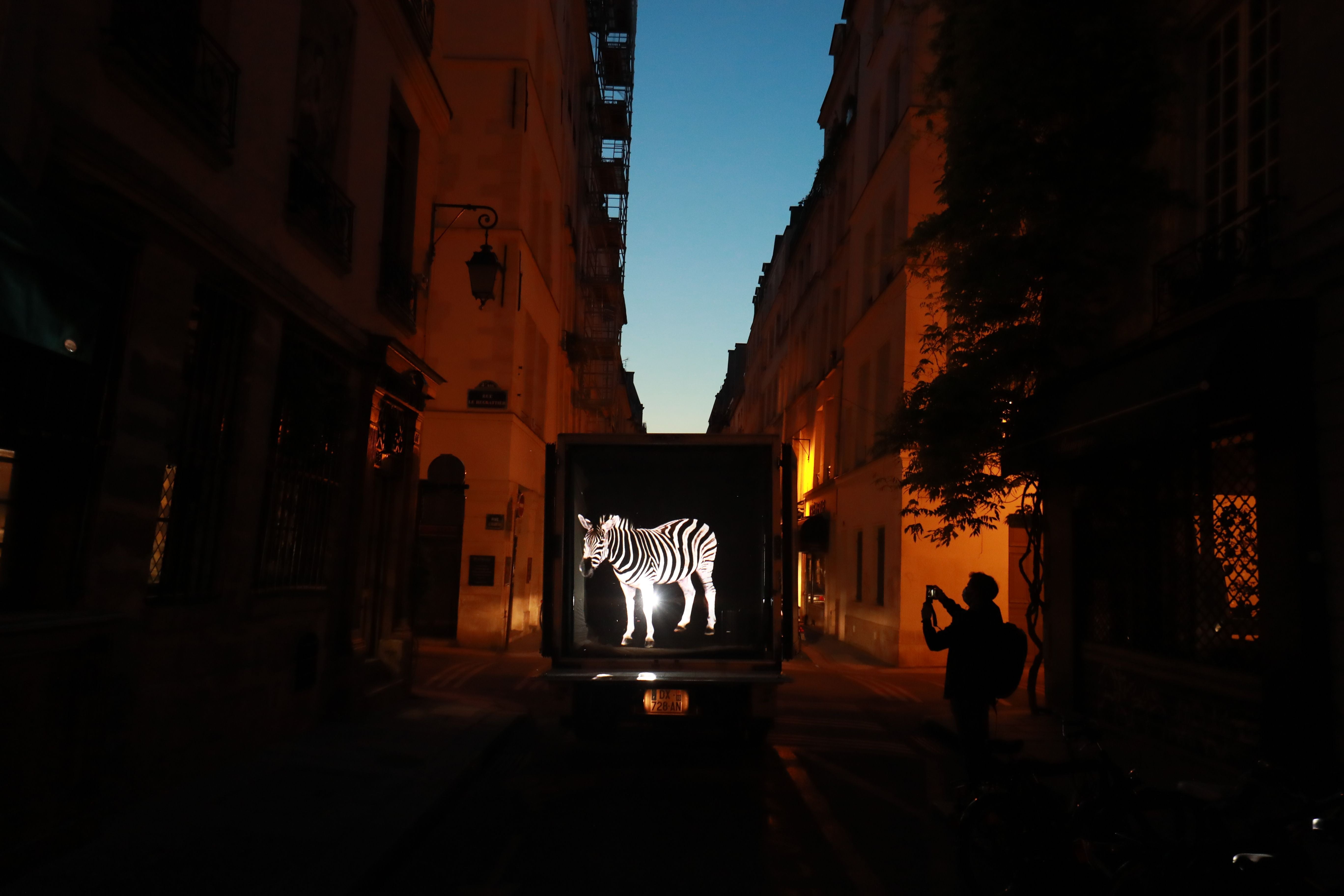Holograms could become common place before the end of the decade, says tech forecaster
‘With technology moving as quickly as it is now, it wouldn’t be strange for holograms to be commonplace in UK households by the turn of the decade’

Your support helps us to tell the story
From reproductive rights to climate change to Big Tech, The Independent is on the ground when the story is developing. Whether it's investigating the financials of Elon Musk's pro-Trump PAC or producing our latest documentary, 'The A Word', which shines a light on the American women fighting for reproductive rights, we know how important it is to parse out the facts from the messaging.
At such a critical moment in US history, we need reporters on the ground. Your donation allows us to keep sending journalists to speak to both sides of the story.
The Independent is trusted by Americans across the entire political spectrum. And unlike many other quality news outlets, we choose not to lock Americans out of our reporting and analysis with paywalls. We believe quality journalism should be available to everyone, paid for by those who can afford it.
Your support makes all the difference.People in the UK could be using holograms to keep in touch before the end of this decade, according to experts.
After a year of communicating via video calls, which saw Zoom and Facetime soar in popularity, tech forecasters are now predicting that holograms will be the next form of virtual communication within just nine years.
It comes after a poll of 2,000 Britons found half are bored of video calls, while the majority feel they don’t give the level of interaction or closeness they want.
But some believe the pandemic has permanently changed the way we interact with technology, and that it will have a remarkable impact on our lifestyles in years to come.
Three in 10 of those polled via broadband provider Virgin Media, even said they would like to keep in touch via a hologram, as having the image of their loved one beamed into their home would make people feel closer and more connected.
In fact, tech forecaster and futurologist James Bellini has predicted that by 2030, we could all be using holograms to stay connected to our nearest and dearest.
Indeed, some 23 per cent of UK citizens believe hologram technology will be the norm in homes across the country.
James Bellini, who worked with Virgin Media on the report, said: “Advancements in technology and lightning-speed broadband mean that pioneering forms of connectivity, such as holograms, are now viable options for when we want to feel closer to those we’re not physically able to be with.
“With technology moving as quickly as it is now, it wouldn’t be strange for holograms to be commonplace in UK households by the turn of the decade.
“Holograms can enhance our lives by removing barriers to human connection, be that screens or distance.
“A more frequent use of the tech could revolutionise the workplace, our social lives and events, travel and leisure or dining experiences.
“Having a 3D life-size, real-time connection with someone via hologram opens up a world of possibility and acts as a great starting point for those looking to re-adjust to normal life as restrictions ease, while relieving the longing of wanting to ‘be’ with another person.
“Although, accessible hologram technology is fairly new, the research from Virgin Media shows the appetite is there, meaning we’ll need the broadband speeds to keep up.”
The study also found some adults believe that in the future, hologram technology will enable them to start jobs that never require meeting colleagues in real life.
A few believe they will use holograms to avoid missing out on live events such as gigs and festivals.
The poll marks the launch of Virgin Media’s ‘Two Hearts Pizzeria’ which will be connecting diners located at opposite ends of the UK with a real-time holographic dining experience, powered by the provider’s gigabit network.
The technology, which involves the projection of life-size 4K holograms, means loved ones separated by the pandemic will be able to see, hear and interact with each other in real-time, as though they were sat together at the same table, without having to stare at a screen.
Jeff Dodds, Chief Operating Officer at Virgin Media, added: “The past year has been a rollercoaster and the support of our loved ones has been more important than ever, be that in real life or virtually.
“The pandemic has accelerated the need to stay connected online and has created an opportunity to revolutionise the way we use technology, with many permanently changing their habits and behaviours as a result.
“The real-time holographic technology demonstrated at the Two Hearts Pizzeria is the natural evolution of the video call, and thanks to our gigabit network, we’re serving up a slice of the future.”
SWNS
Join our commenting forum
Join thought-provoking conversations, follow other Independent readers and see their replies
Comments